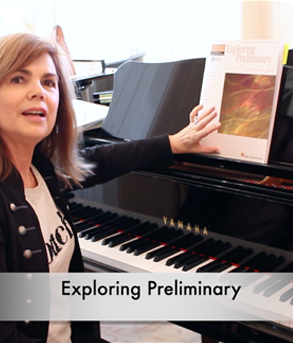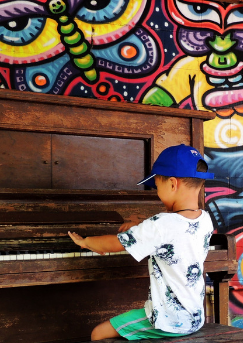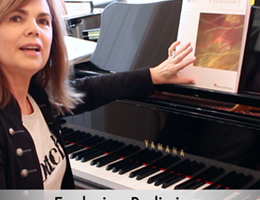
- Oct 21, 2018
- - 0 comment
Rewarding Practice
How do you support your child’s musical learning so that it becomes a wholly positive experience?
In a recent Australian longitudinal study, which informed the book “Music in our Lives” by Gary McPherson, researchers discovered that children were most likely to commit to playing music long-term in households where parents positively supported their practice.
Learned behaviour is reinforced by reward. When a parent provides a reward via positive comments, encouragement and joining in the enjoyment of their child’s performance, practice becomes a means of creating happy and enduring life experiences. This supportive relationship reinforces the positive feelings that music brings and it helps to establish a practice routine that delivers fun and steady progress.
Power Practice
Forget time-based practice sessions. You can change the way you and your child think about practice by using the Power Practice approach. The emphasis is on achieving improvement through mindful focus on realistic goals during short, regular sessions. Practice is not about how long your child spends playing the instrument. It’s what they achieve that matters. Adopting this mindset will help to form a positive practice habit that is manageable, effective and enjoyable.
Your continued support can help trigger your child’s behaviour and willingness to practise. Begin with the piece that your child finds most difficult. The idea is to begin by focusing on the most difficult sections of a piece, one at a time. Positively encouraging your child to power practise can turn learning the most difficult sections of the piece into a positive experience. Celebrating each achievement together will heighten your child’s confidence. Your interest and encouragement reinforces the positive experience of mastering each challenge.
Improvement is achieved by isolating each small challenge and perfecting them one at a time. Learning is consolidated by integrating the difficult section into the whole piece by playing into and through the difficult passage. Success at each stage marks the end of a power practice.
Make it fun!
With mastery of each mini challenge comes reward, which reinforces the positive experience of the habit of regular practice. Be creative and inventive in setting the challenges. A challenge might be playing a scale, note-reading, perfecting four bar, or playing to a time-limit.
Set your sights on the long-term. Research shows that learning is most effective when students practice little and often. Valuing your fledgling musician and celebrating their little successes with them is important for mastering a complex skill such as musicianship. Over the short-term, there may be days when your child feels that things are just too difficult. Share in their journey, using reward realistically, especially when they are struggling. Children know when praise is genuine. Refocus on the journey and mastering each challenge one step at a time.
Together, you can plan a milestone goal, like a family concert for friends or relatives. This is a great way to highlight and celebrate your child’s progress. The ultimate reward for learners is the realisation of how much they have improved. Persistence and the positive mindset of power practice will pay off. Your child will long remember how you supported them through challenges and shared in the pure enjoyment of this wonderful skill.
 Login
Login









